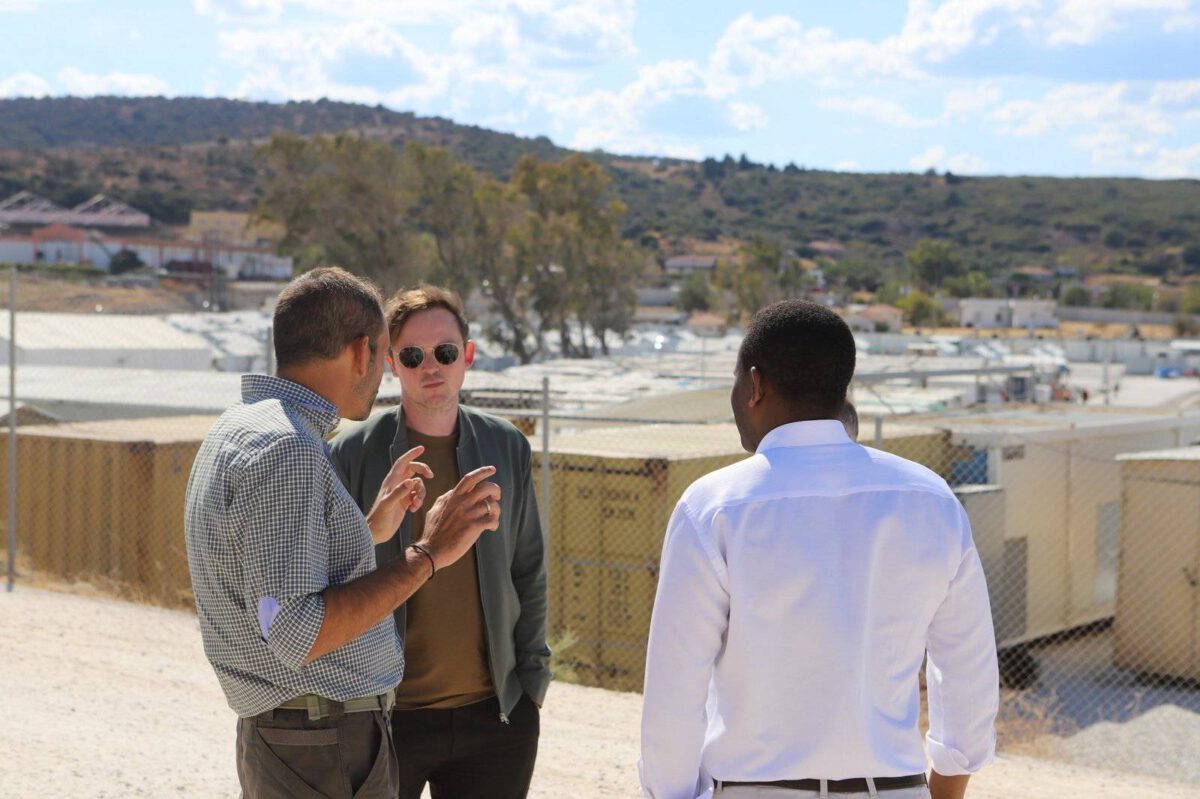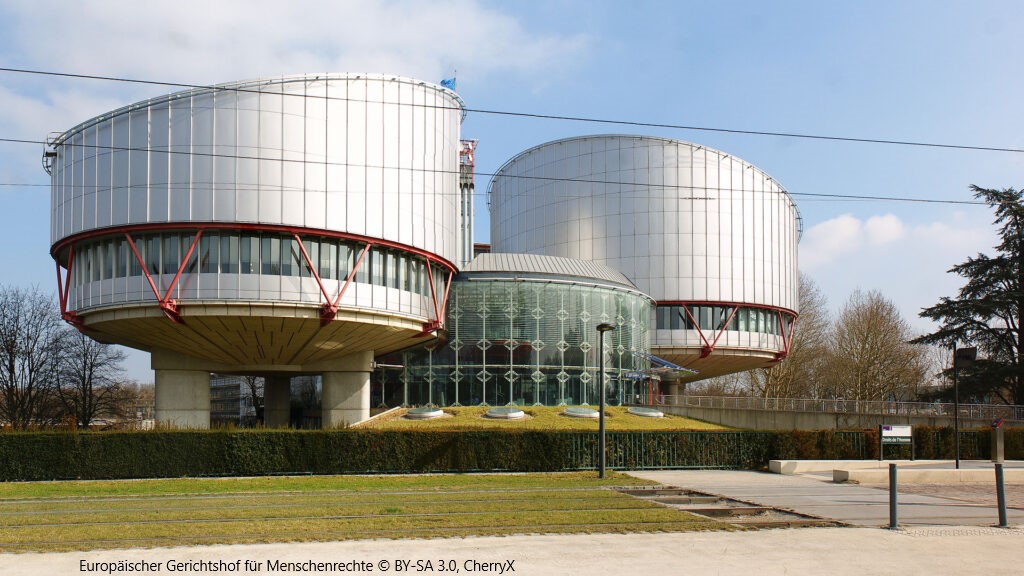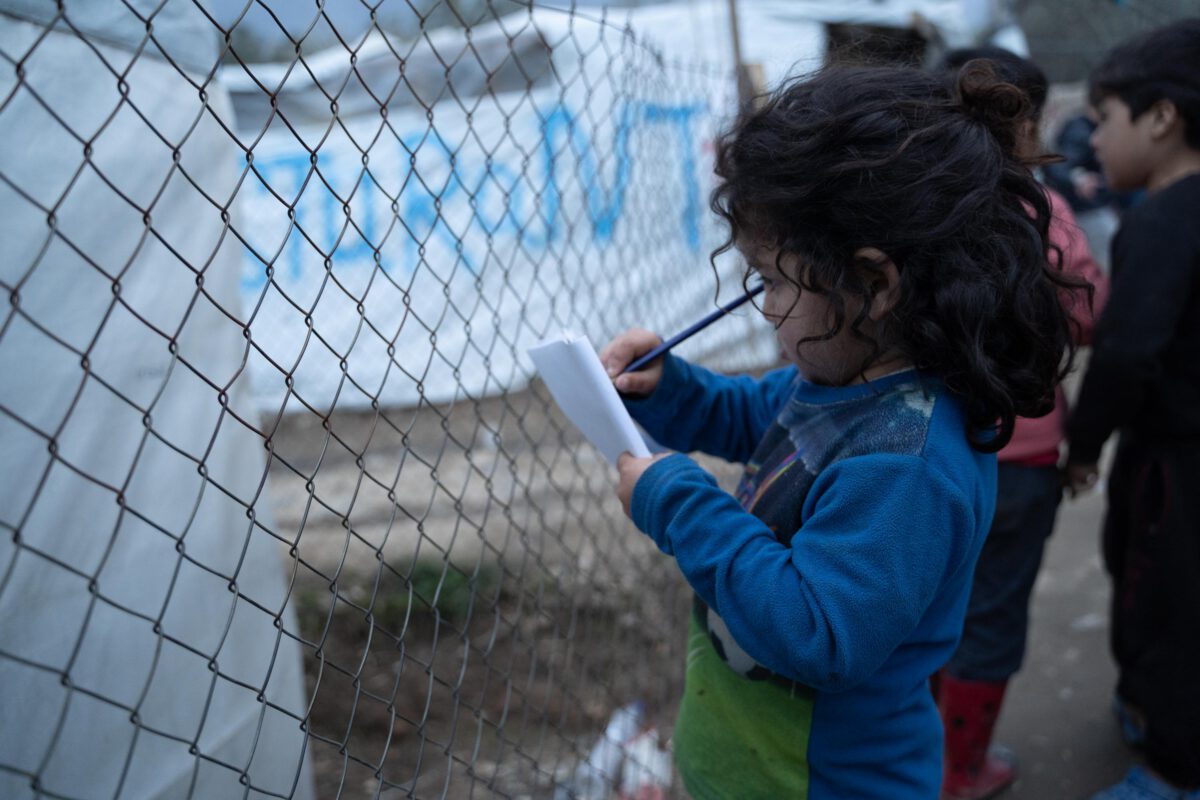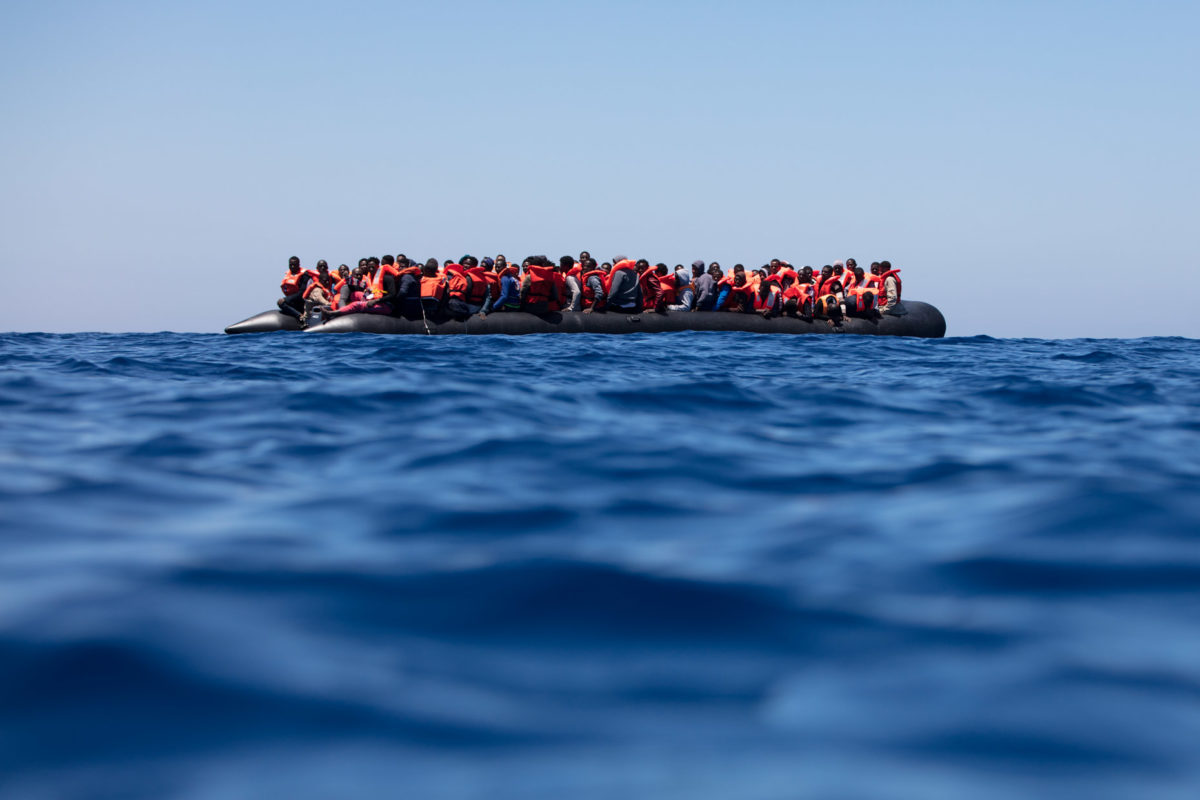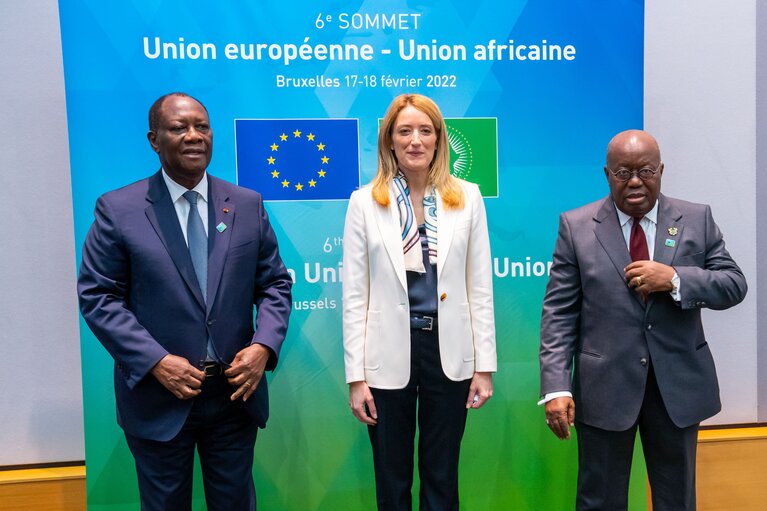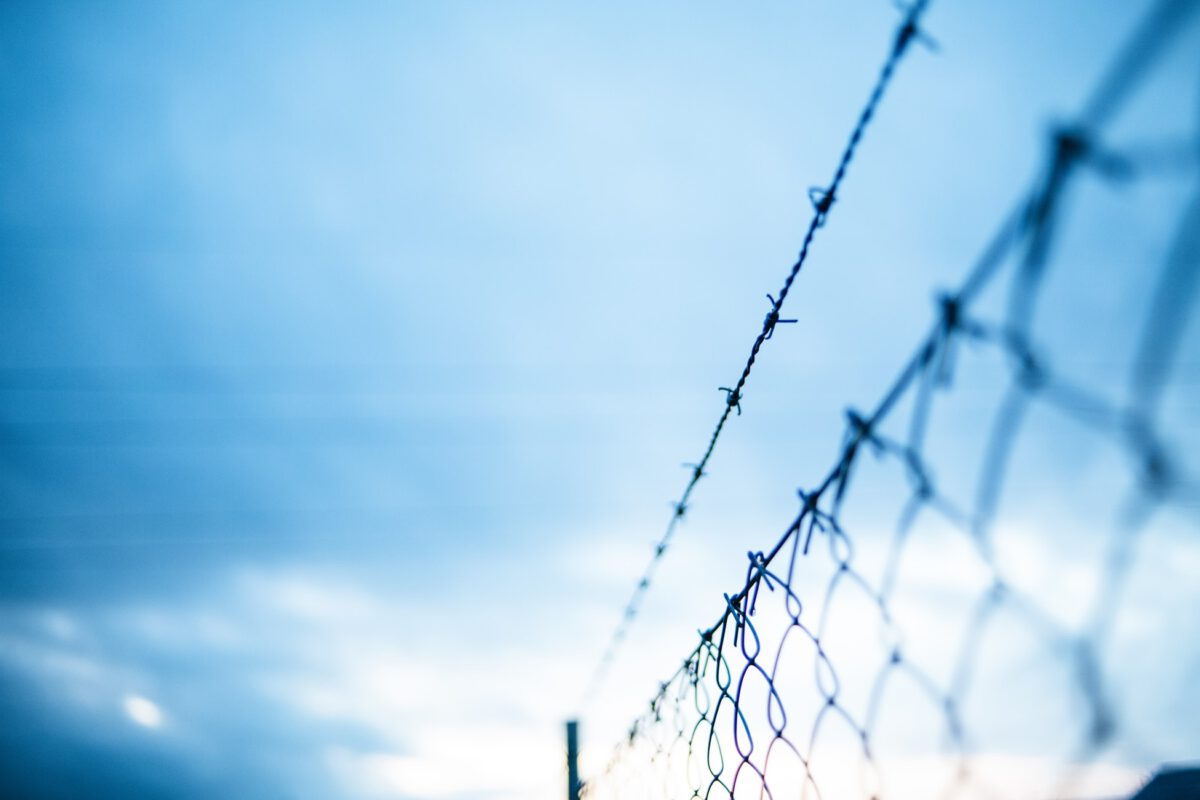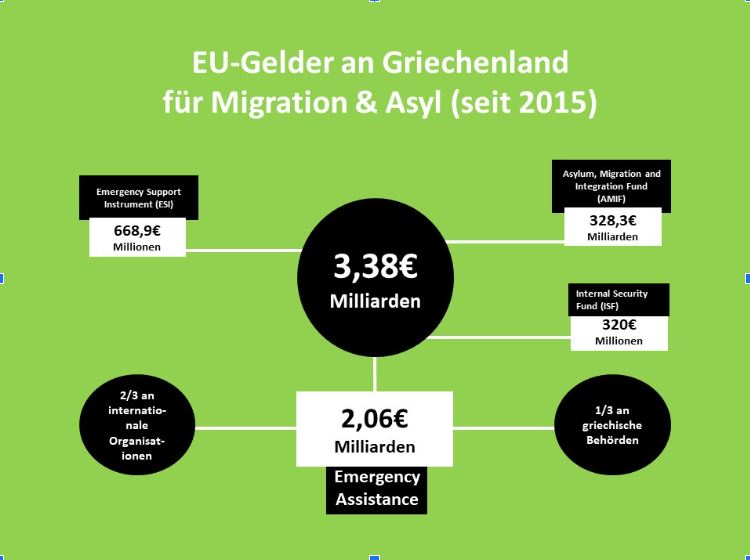Green delegation trip to the Greek border
From September 19 to 21, I was part of a delegation from my group in the European Parliament, together with MEPs Tineke Strik from the Netherlands, Saskia Bricmont from Belgium and Gwendoline Delbos-Corfield traveled from France to Greece. The aim of the trip is to get a picture of the current situation of refugees in Greece – but also the situation of the rule of law and freedom of the press in general. The Greek government has had leading opposition politicians and journalists monitored by spyware and, according to Reporters Without Borders, the country is lagging behind in terms of press freedom, currently ranked 108 out of 180 countries – Only Russia and Belarus perform worse in Europe.
RIC Fylakio – Conditions in the camps.
The focus of our trip was a visit to the Evros, the border river to Turkey. Here again and again particularly serious human rights violations – violent and systematic pushbacks – documented. In addition, we have also addressed issues related to biometric mass surveillance of protection seekers in so-called RIC (Reception and Identification Center). We visited the RIC in Fylakio, where people are actually allowed to be locked up for a maximum of 25 days. In practice, even children are locked up there for months and have no access to education or medical care. The camp itself is small, but full of locked doors and barbed wire, with no shade or color. People live in container houses with blocks for families, men and unaccompanied minors. The NGOs on the ground are so intimidated by the government that they are afraid to talk to us MPs for fear of losing access to the camp or funds if they do.
Dead on the Evros
We were denied access to the border region, even though we are MEPs and I am responsible for external borders in Parliament. Unfortunately, the Greek authorities are concretely preventing me from doing my work as an MEP. We were standing in front of two containers, in which lay the bodies of 20 people found on the Evros River. This year alone, the bodies of 51 people have been found in the Greek border region. We talked to Dr. Pavlidis; he takes care of these cases on a voluntary basis, trying to create certainty for the relatives whether their missing sons, daughters or parents are still alive. Often the bodies are found only after months – also because NGOs are denied access to the border region.
Meeting with Frontex
All activities of the agency are based on the self-declared needs of the national authorities and are under that supervision. The Greek authorities try to keep Frontex away from their illegal activities and pushbacks, because Frontex should actually report them – which they have demonstrably not done in many cases. The border guards and supervisors we spoke with claim to report all activities, but have never witnessed any pushback. When we asked what they actually do all day, we did not receive a comprehensible answer.
Meeting with Notis Mitarachi
On Tuesday we had a meeting with the Greek Minister of Migration Notis Mitarachi, who has repeatedly accused us MPs and also renowned international media of spreading fake news and Turkish propaganda when we talked about the obvious pushbacks, violence and disappearances at sea. The Greek government is not only building fences on the border, but also a wall of lies. In his speech, Mitarachi spoke of much better reception conditions and a minimal backlog of asylum procedures in the country, but did not address the issues raised by credible actors allegations of pushbacks raised and other human rights violations. I have confronted Mr. Mitarachi with several recent cases, including the Cases of people stranded on an island on the river Evros. But Mr. Mitarachi simply claimed that all these cases were lies and fabrications.
Freedom of the press in Greece
We met journalists who were involved in the coverage of the Predator case involved where Greece illegally wiretapped journalists and opposition politicians. Their accounts painted a picture of intimidation, national media that have become the government's mouthpiece, and a severe lack of resources for investigative journalism.
Lesbos
After the end of the green mission, I traveled to Lesvos to see the situation in the Mavrouvoni camp, which was built after the fire in Moria and was intended as a short-term emergency solution. The situation in the camp is still not good, but it is also much better than a year ago due to the many NGOs and international pressure. How the situation was a year ago, I have written down here. Currently, a new camp is being built, which is even more remote than Mavrouvoni and should be ready next spring. It is feared that people will be locked up there and NGOs will not have access.
General situation in Greece
On Tuesday, we met with experts in Athens who deal with the dangerous effects of biometric mass surveillance, corruption in the allocation of public funds, attacks on press freedom and the wiretapping scandal. The many discussions left the picture of a state where basic democratic standards and human rights are no longer respected. The EU, especially the Commission, must act quickly and build pressure to counter further deterioration. Civil society, independent journalists and refugees need active support to resist the attacks by the state and the government.
Greek government lies
My visit to the Evros and Athens has shown me once again that the Greek government systematically lies in order to evade its responsibility and does not shy away from mistreating people on the run, intimidating NGOs and attacking and spying on journalists. But there is also an intact civil society that needs our support now to continue fighting for the rights of those seeking protection and for the preservation of democracy and the rule of law.
